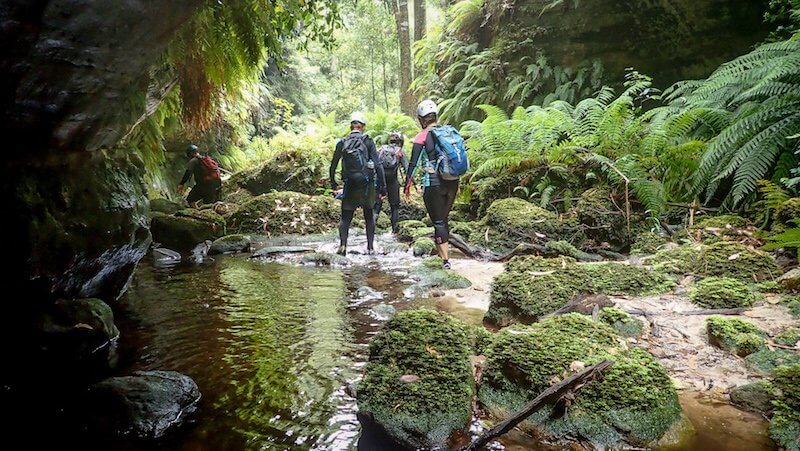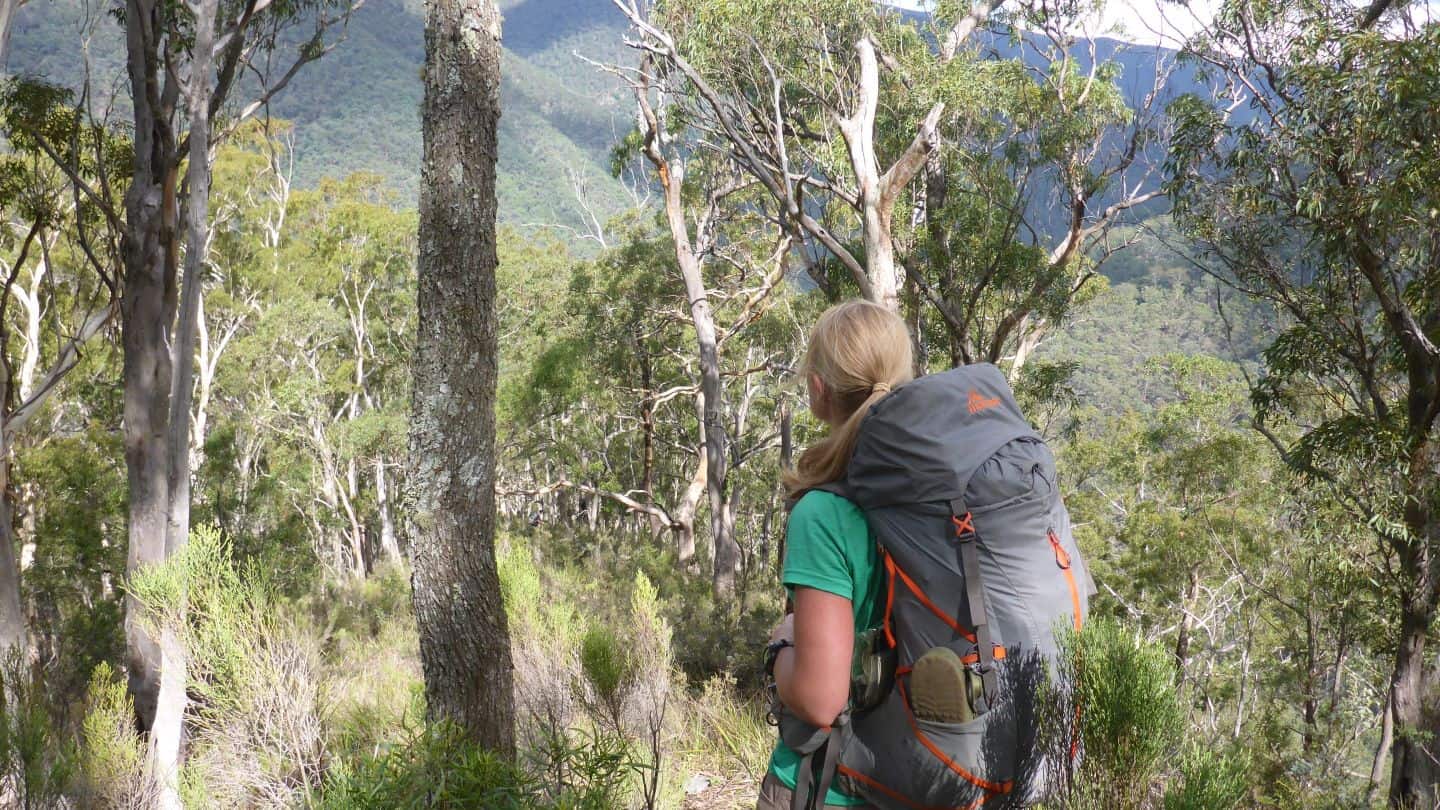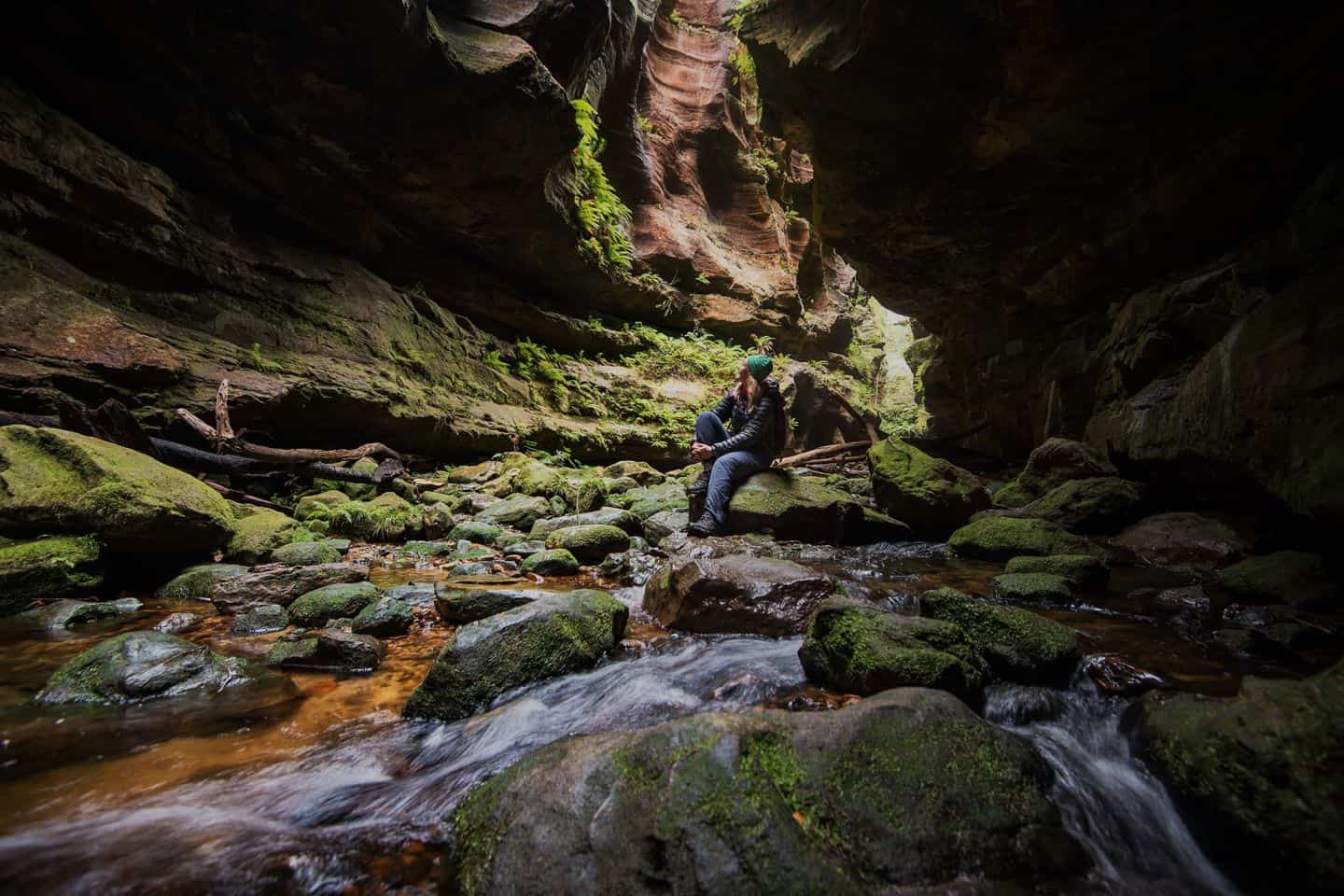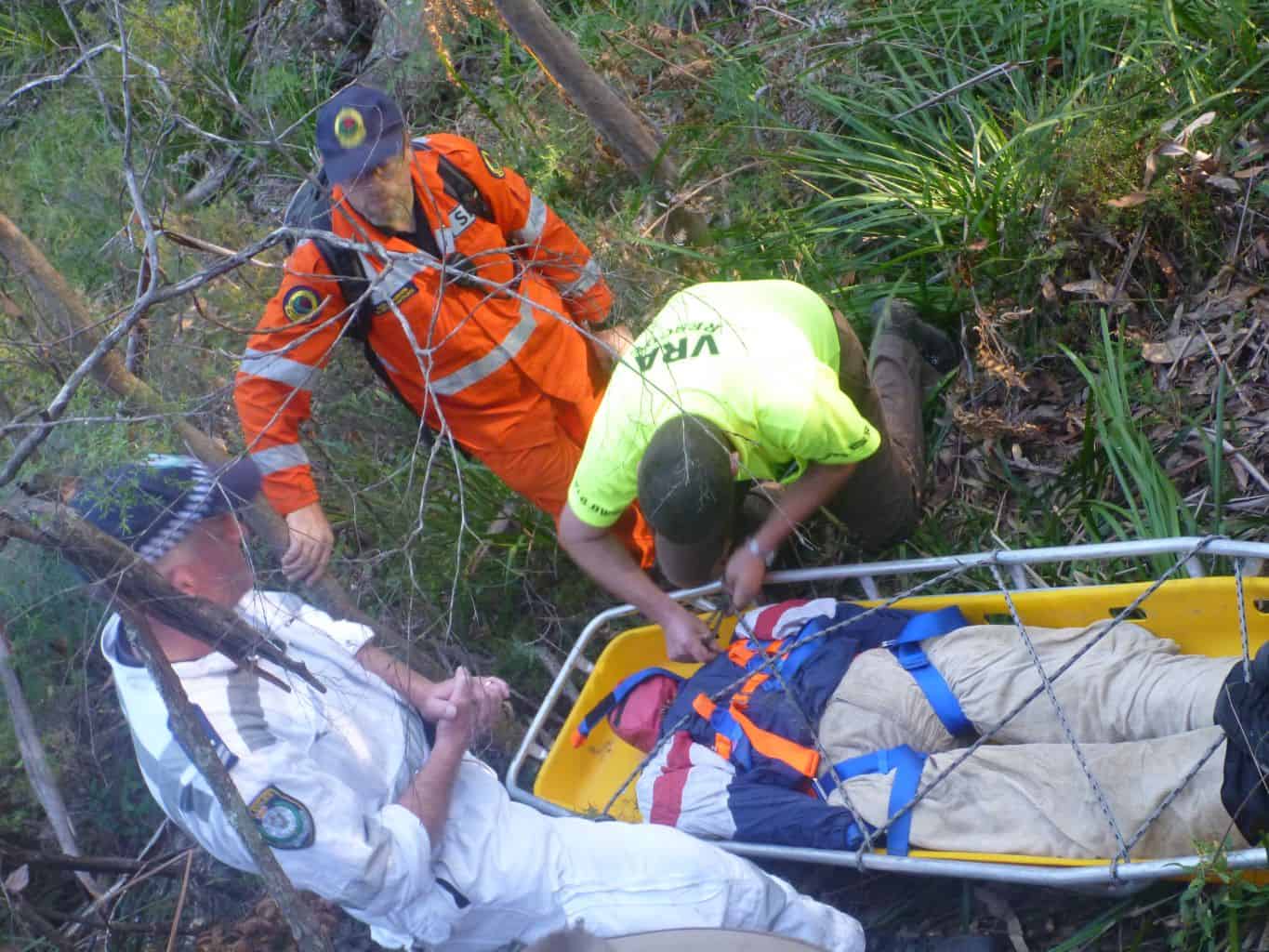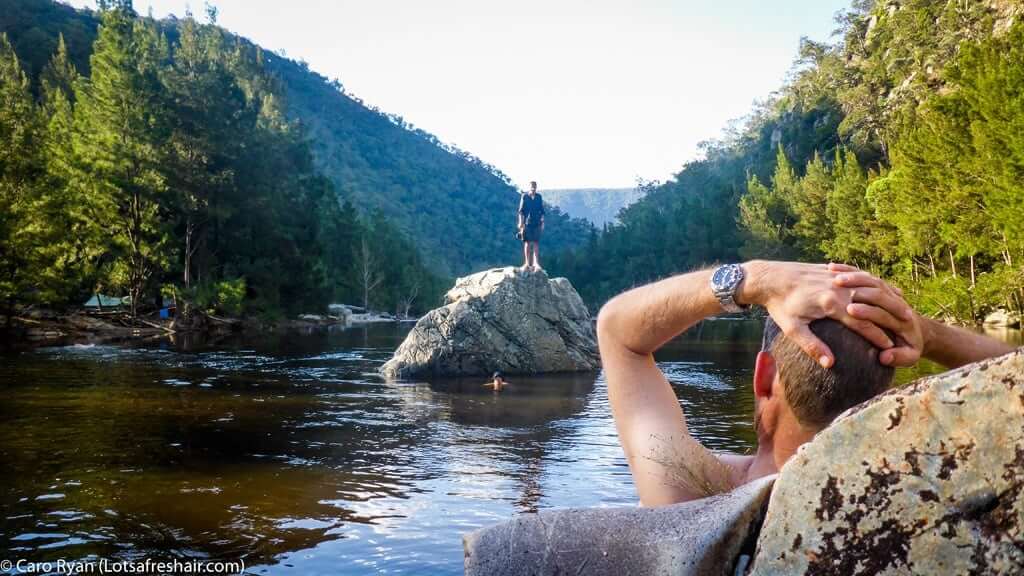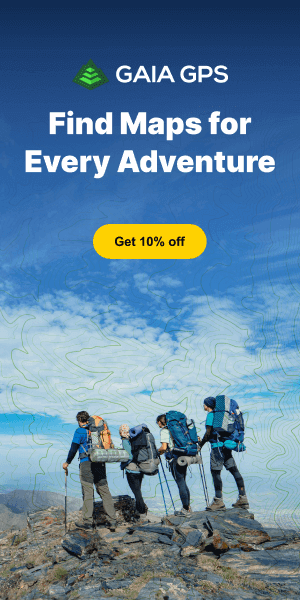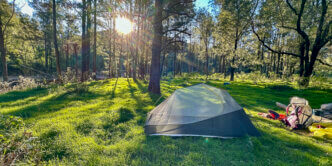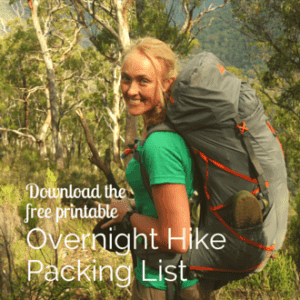There’s something about sliding into a canyon and feeling it’s ancient green embrace that makes me feel like Frodo. As the walls climb higher around me and the water calls me forward to join it tumbling over boulders, sliding down ropes and committing my life to 9mm of confidence, I can’t help but feel that I’ve entered natures cathedral, where secrets, whispers and sacred moment are held. But for these places to remain special, it’s important we all are aware of canyon safety and follow a code of ethics.
It’s that feeling you get of venturing deeper into something unknown. Even if you’ve been through a canyon before, because this thing is ever changing through the carving of water’s knife, there’s always something new to discover.
Here in Australia, our Blue Mountains, Kanangra-Boyd and Wollemi National Parks hold hundreds of such places of delight, shielded from eyes and sunlight, they hold treasures that relatively few get to see. However, with the increase in popularity of canyoning, the secret is getting out and people are starting to visit them, unfortunately sometimes without the knowledge, experience or equipment that’s needed.
That’s why I decided to make this latest video for the channel. Not only as a canyoner and lover of these places myself, but with my safety hat of NSW SES Bush Search and Rescue on.
Not many people know this, but there is a voluntary Canyon Code of Ethics that has been in place for about 10 years or so. It sums up what we should all be doing to care for our canyons… and ourselves.
Looking after our canyons
- Keep your group to a small and manageable size (4-8).
- Don’t place bolts or alter rock surfaces in any way.
- Avoid leaving unnecessary slings and remove old slings.
- Keep to creek channels to avoid sensitive creek banks and soft vegetation.
- Avoid establishing new abseil routes or footpads – keep to existing paths or spread out in trackless terrain.
- Walk carefully in rocky pagoda areas – flaky rocks and thin ledges can break easily.
- Avoid marking tracks (signs, cairns, broken branches). Each group should have at least one competent navigator.
- Don’t publicise ‘new’ canyons or those in wilderness areas to preserve opportunities for discovery and to minimise impacts.
- Use fuel stoves – fires scars are unsightly, attract rubbish and encourage vegetation damage.
- Avoid camping in canyon environments.
- Dispose of human waste away from canyons.
- Leave the crayfish and other wildlife alone.
- Carry out any rubbish.
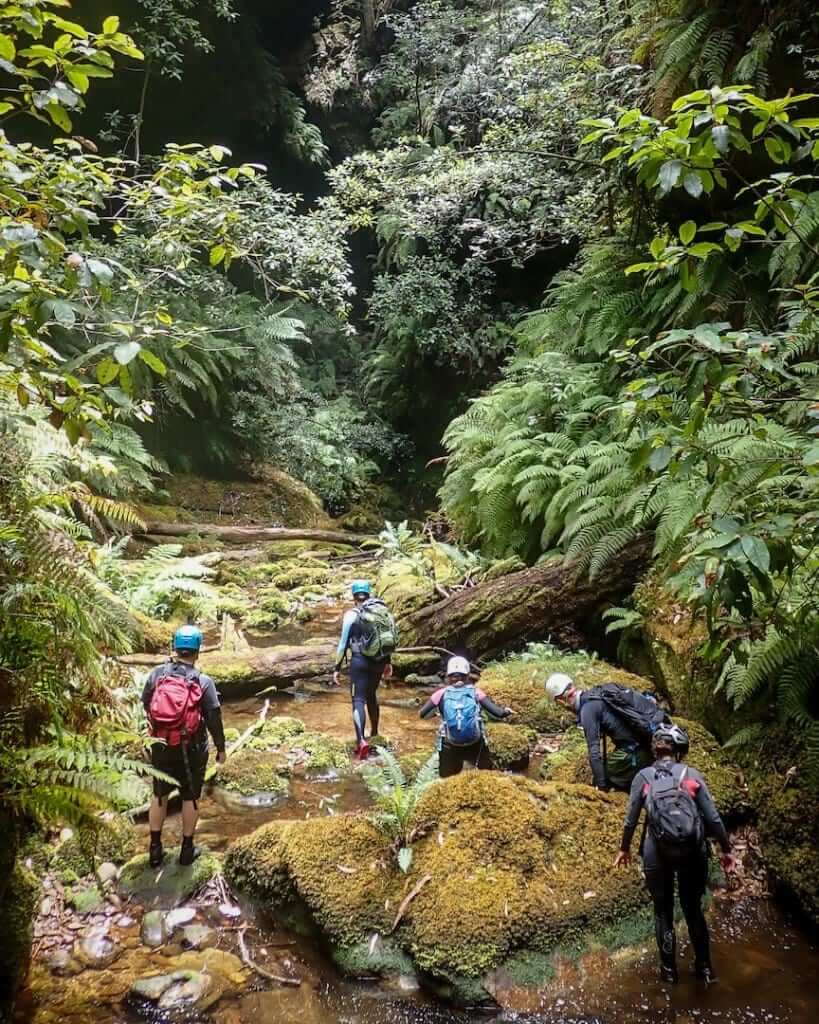
Looking after ourselves
- Take responsibility for your own safety.
- Avoid canyoning if rain is forecast or if the weather looks changeable.
- Be self-reliant – know the route, have adequate food, maps, clothing, and safety and first aid gear, know how to swim and self-rescue on ropes.
- Teach beginner abseilers prior to canyon trips rather than in canyons.
- Hypothermia is a real risk – wetsuits and spare warm clothes are advisable
- Give way to faster groups.
- Avoid peak use times in well-known canyons if possible. This especially applies to Empress Canyon where overcrowding can cause delays and safety problems.
- Leave details of your group, route and expected return time with a responsible person.
- Emergency Contact – ring 000
- If you’re keen to get into the nitty gritty of the do’s and don’ts, you can read up on them in the Australian Adventure Activity Standards (AAAS) for Canyoning. Just check to see if you (and/or your group) fall under the dependent or independent groups to see if it’s applicable. Either way though, it’s all good stuff!
Yes, things can go wrong at anytime – sometimes no matter how experienced or well prepared you are, but if we all agree and stick to this voluntary Blue Mountains Canyon Code of Ethics, we will hopefully ensure that everyone has the best canyoning experience possible.
I urge you, if you’ve never been canyoning before, plan a visit to the Blue Mountains and get in touch with the guys at Blue Mountains Adventure Company or Blue Mountains Climbing School and get ready for entering another world!
